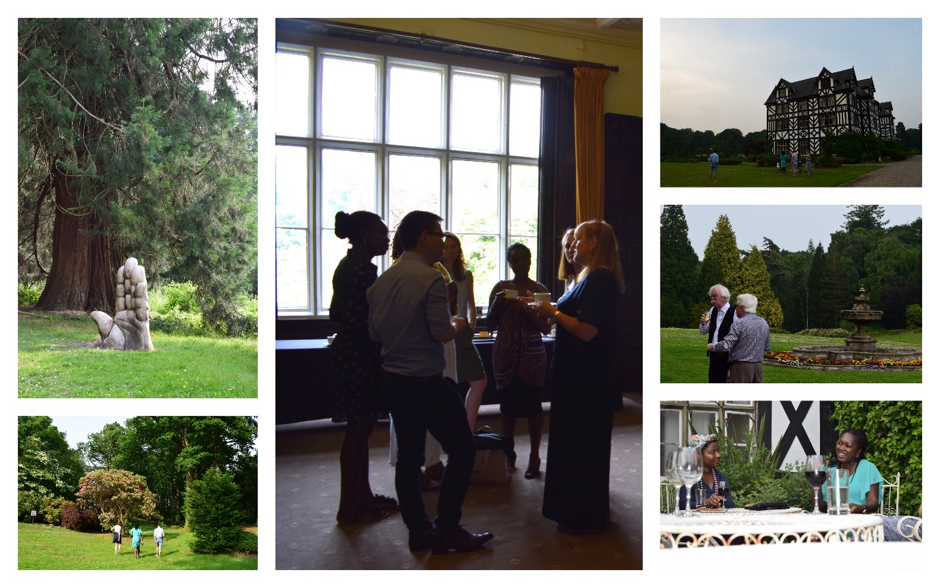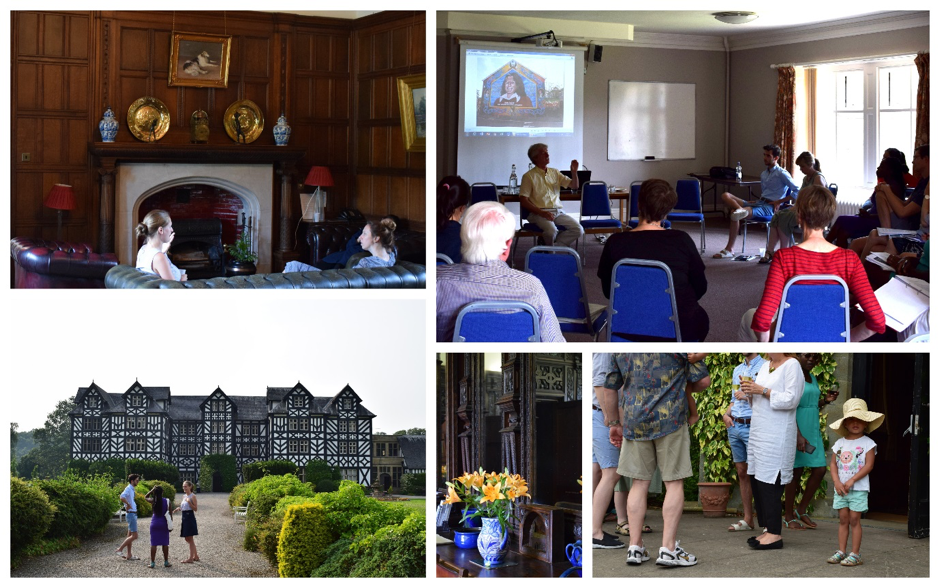Aleydis Nissen (Cardiff School of Law and Politics) and Titilayo Adebola (Warwick Law School)
Building on last year’s successful inaugural edition, the second Socio-Legal Residential Masterclass took place from 19 to 21 June 2017 at the picturesque Gregynog Hall in Wales. Just like last year, the participants included a mix of established socio-legal scholars and a diverse group of PhD delegates. While last year’s edition focused on the history of socio-legal scholarship, this year’s gathering focused on the politics of socio-legal scholarship. The Masterclass was co-convened by Prof. Dr Linda Mulcahy (London School of Economics), Prof. Dr Jiří Přibáň (Cardiff University) and Prof. Dr Phil Thomas (Cardiff University).
Socio-legal research analyses law in the context of wider society. It can be challenging to unpack complex social realities, thus participants discussed the responsibilities of socio-legal researchers to offer valuable insights to their wider communities through their research. In particular, the established socio-legal scholars unreservedly explained the political choices that they have made throughout their careers alongside key projects and scholarly interventions.
The illuminating discussions, enriched by the interactive format, generated valuable insights for the PhD delegates. Five key takeaways from the Masterclass are presented here.
- Formulating research questions: To formulate relevant socio-legal research questions, it was agreed that it is important to pay attention to the ‘cracks and dysfunctions’ in existing legal systems. This requires the willingness to think about new legal solutions beyond law itself.
- Inclusion of the marginalised: It was reflected that socio-legal researchers aim to inform the policies and rules that are set out by power-holders. Recalling that existing laws and policies often benefit the ‘powerful’ in society, established scholars felt a strong sentiment to include the marginalised in society in their research agendas. The presented cases included, amongst others, criminal defendants, rape victims, and prisoners.
- Breaking down silos: Breaking down academic silos was proffered as another crucial way to design socio-legal research projects. Socio-Legal researchers often employ an interdisciplinary approach to analyse law in the context of other disciplines including history, politics and sociology. In other words, socio-legal research brings law and ‘its others’ together. The participants also shared how their various life experiences – from experiencing discrimination to working in a trade union – had informed their research. It was agreed that it is necessary for socio-legal researchers to be open and honest about how their journeys influence their research approaches.
- Interrelationships between questions, theory and methodology:The diversity of the research discussed – ranging from constitutional law, studying lawyers, homecare, murals, courtroom architecture, rape, policing to prison services – uncovered a broad variety of socio-legal methodologies. However, participants agreed that in every piece of socio-legal research, carefully selected research questions, theoretical frameworks and methodology ought to interact and reinforce one another. Socio-legal research does not exist in a vacuum from black letter law either. Traditional doctrinal and socio-legal research can inform each other. Ultimately, it is important for all research to be original, significant and rigorous.
- Handling rejection: Finally, established scholars shared how they handled rejection by policy makers and other stakeholders. They believed that persistence, integrity and strong networks carried them through adversity. Some scholars also reflected that they learned to reach out to those who are more experienced in dealing with the consequences of their research. Civil society organisations might, for instance, be better placed to disseminate and implement research findings.
In sum, the three-day intellectually stimulating Masterclass created an opportunity for a young generation of socio-legal researchers to both establish new connections and reflect on their long-term contribution to society. As Prof. Dr Joe Sims (Liverpool John Moores University) concluded ‘if you alter, even but a millimetre, the way people look at reality, then you can change it’ (quote from James Baldwin).
 This Masterclass was facilitated by the generous support of a consortium of Cardiff, London School of Economics, Queen Mary ESRC funded doctoral training centre, the Welsh ESRC Doctoral Training Centre, the Cardiff Centre of Law and Society and the Journal of Law and Society and the Socio-Legal Studies Association.
This Masterclass was facilitated by the generous support of a consortium of Cardiff, London School of Economics, Queen Mary ESRC funded doctoral training centre, the Welsh ESRC Doctoral Training Centre, the Cardiff Centre of Law and Society and the Journal of Law and Society and the Socio-Legal Studies Association.


Leave A Comment